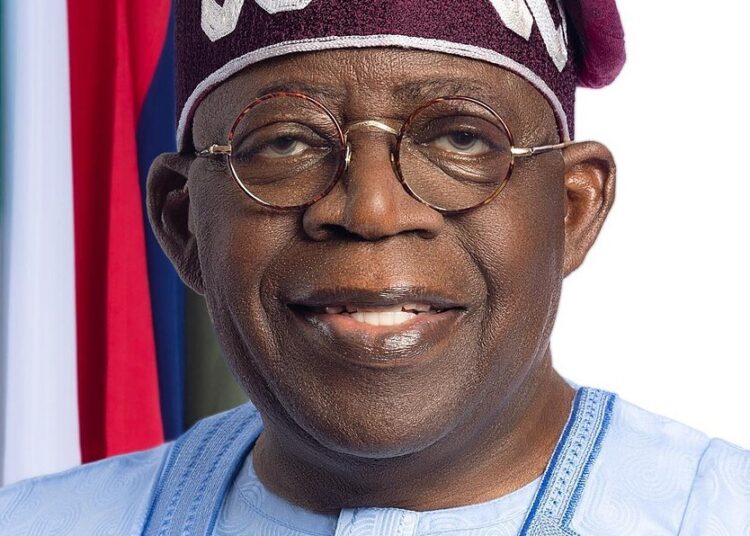President Bola Ahmed Tinubu on Tuesday urged the private sector to play a central role in bridging Nigeria’s infrastructure gap, declaring that the era of public-only funding models is no longer sustainable.
Speaking at the 2025 Nigeria Public-Private Partnership (PPP) Summit held at the State House Banquet Hall, Abuja, the President who was represented by Vice President Kashim Shettima called for innovative, long-term partnerships to deliver inclusive and sustainable infrastructure across the country. The event was organized by the Infrastructure Concession Regulatory Commission (ICRC).
This is as the International Finance Corporation (IFC), African Export-Import Bank and the African Development Bank (AfDB) urged the authorities to strengthen the institutional regulatory environment and enable a transparent and predictable business and regulatory environment in Nigeria to effectively mobilise investment for infrastructure development.
Regional director, Central Africa & Anglophone West Africa on IFC, Dahlia Khalifa said “Let’s reduce red tape, speed up delivery timelines, and enhance competition, which will only improve the performance overall and will boost investor confidence and unlock new flows of investment. Investors follow predictability.”
Also, the vice-president, Private Sector, Infrastructure and Industrialisation at AfDB,
Solomon Quaynor said PPPs must be designed for success, with risks allocated and returns that reward performance, not shortcuts done right. He said the PPPs should be designed to survive regime change to ensure sustainability.
Addressing a gathering of investors, policymakers, and development partners, Tinubu said the federal government was not offering burdens but opportunities, adding that Nigeria presents scale, demand, and returns unmatched across Africa. “We seek long-term partners who are ready to help us bridge our infrastructure gap with purpose and precision,” he said. He stressed that his administration is committed to removing bureaucratic bottlenecks and streamlining processes to accelerate project delivery under the PPP framework.
Highlighting recent economic reforms, the President cited the removal of unsustainable fuel subsidies, liberalisation of the foreign exchange regime, and efforts to optimise government revenues as foundational steps to restore investor confidence. He noted that the Infrastructure Concession Regulatory Commission (ICRC) has been strengthened to ensure better regulation, coordination, and de-risking of PPP transactions in line with global best practices.
Tinubu also reaffirmed the government’s commitment to the National Integrated Infrastructure Master Plan (NIIMP 2020–2043), which aims to increase Nigeria’s infrastructure stock from the current 30 to 35 percent of GDP to at least 70 per cent by 2043. “But blueprints do not build roads. Policies alone do not generate megawatts,” the President said, emphasizing the need for collective action to transform plans into tangible outcomes for Nigerians.
He warned against allowing projects conceived at the summit to stagnate on paper or become entangled in red tape, assuring that the government would fast-track approvals for viable proposals and improve inter-agency coordination. “What matters to the average Nigerian is not promises, but power in their homes, roads to their farms, access to clean water, modern hospitals, and quality schools,” Tinubu said.
The President urged investors to bring not just capital, but also integrity, efficiency, and innovation to the table. “Let this summit be remembered not for fine speeches, but for bankable projects, signed deals, and enduring progress,” he concluded, formally declaring the summit open.
Earlier, the director general of the ICRC, Dr. Jobson Oseodion Ewalefoh, declared that Nigeria’s need to embrace Public-Private Partnerships (PPPs) is not only compelling but also urgent, given the country’s massive infrastructure gap and growing population. Dr. Ewalefoh emphasised that Nigeria is open for business and ready for partnership across strategic sectors.
He noted that with over 200 million people, a rising middle class, vast natural resources, and an infrastructure deficit estimated at over $2.3 trillion, the time to mobilise private capital into national development is now. According to him, the ICRC is fully committed to ensuring that PPP projects are legally sound, economically viable, and socially impactful, aligning regulation with facilitation and compliance with collaboration.
Highlighting recent progress, Dr. Ewalefoh praised President Bola Ahmed Tinubu’s unwavering support for the PPP framework, describing it as a catalyst for accelerated infrastructure delivery under the Renewed Hope Agenda. “Mr. President has taken deliberate steps to strengthen the ICRC, endorsing streamlined processes to fast-track PPP projects, while directing all MDAs to strictly comply with the ICRC Act and guidelines,” he said.
He added that the president’s hands-off approach has preserved the Commission’s regulatory independence, with Tinubu frequently referring investors directly to the ICRC. This, he said, has resulted in unprecedented speed in the approval of projects by the Federal Executive Council, including the fast-tracking of critical projects like the Dasin Hausa Dam in Adamawa State, meant to mitigate the impact of flooding from Cameroon’s Lagdo Dam.
The summit, themed “Unlocking Nigeria’s Potential: The Role of Public-Private Partnerships in Delivering the Renewed Hope Agenda,” brought together key players from government, the private sector, and development partners to co-create frameworks that will de-risk investments and scale infrastructure delivery. Dr. Ewalefoh reaffirmed the ICRC’s commitment to walk with investors from project conception to financial close, ensuring sustainable, private-sector-led growth across Nigeria.
We’ve got the edge. Get real-time reports, breaking scoops, and exclusive angles delivered straight to your phone. Don’t settle for stale news. Join LEADERSHIP NEWS on WhatsApp for 24/7 updates →
Join Our WhatsApp Channel










